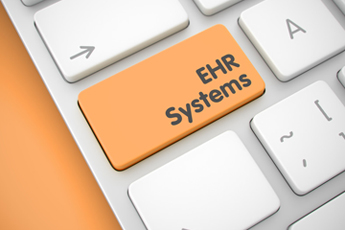 The need for accuracy in electronic health records (EHRs) is more important than ever with healthcare providers increasingly offering patients access to their own EHRs through online portals. Many physicians rely medical transcription outsourcing to ensure this accuracy in health data such as medications, lab results, physician notes, past diagnostic follow-up, health histories, discharge summaries, radiology reports, immunizations, and relevant health care information. Patient access to this information allows them to get a more comprehensive understanding of their medical conditions and treatment plan. Increasing patient engagement can enhance care.
The need for accuracy in electronic health records (EHRs) is more important than ever with healthcare providers increasingly offering patients access to their own EHRs through online portals. Many physicians rely medical transcription outsourcing to ensure this accuracy in health data such as medications, lab results, physician notes, past diagnostic follow-up, health histories, discharge summaries, radiology reports, immunizations, and relevant health care information. Patient access to this information allows them to get a more comprehensive understanding of their medical conditions and treatment plan. Increasing patient engagement can enhance care.
Online Portals improve Patient Engagement
According to the National Coordinator for Health Information Technology (ONC), 64 percent of hospitals allowed their patients to view, download, and transmit their health data in 2014, and 51 percent were equipped for secure messaging with their patients. Online portals allow patients to view demographic and medical history data, and get real-time lab results updates. They come with capabilities such as:
- direct secure messaging
- online appointment scheduling
- online bill payments
- prescription refill requests
- data update capabilities
Giving patients access to their health information offers many benefits:
- Patients can better manage and coordinate their care, and have greater control over their health and wellbeing.
- It makes patients better prepared to interact with their providers about their care.
- The portals promote patient loyalty by making them feel more connected to their provider.
- The secure messaging features can help improve chronic disease management. By checking in with their chronically ill patient on a regular basis, physicians can ensure proper follow up and see that they patient comes into the office when necessary.
A study conducted at Geisinger Health revealed that patients with access to physicians’ notes had higher rates of medication adherence since they were more involved in and informed of their treatment plans.
Patient EHR Access Barriers and Concerns
There are many challenges to providing patients access to their EHRs:
Technical jargon: Patients may not understand the technical words their chart and will need a physician to explain it to them. For this, they may need the help of other members of the care team in addition to their own physician.
Getting other physicians onboard: In a Physicians Practice article, one provider says that many physicians are not comfortable sharing the entire patient record with patients. They must be made to understand that patient access to an electronic interface will be all the more significant in the context of quality-based reimbursement as such access will influence health outcomes.
Access to their test results may increase patient anxiety: One potential drawback is that patients may get to see their test results before their physician does. Those who do not understand the implications of abnormal results may become overly anxious. However, this pitfall is not that significant as patients prefer full transparency and real-time results communication.
Disparities in EHR use among diverse social groups: www.clinicaladvisor.com reported on a review by experts at the University of Pittsburgh which found that patients under the age of 35 and those with a lower level of education were less likely to use patient portals. The report also notes that EHR usage was lower among as also African American and Latino patients, the main reason being lack of technical support to navigate the electronic record.
Security issues: Patient portals pose security issues and practices need to consider potential for breach and Health Insurance Portability and Accountability Act (HIPAA) concerns. Healthcare providers need to take proper care about logins and other security measures to ensure that unauthorized persons do not intrude into their record systems. Experts say that when patients are given their account login information, they should be educated on properly protecting their document. Providers are not at fault as long as reasonable care was taken when the information was in the care of staff. Practices will also need to have someone responsible for maintaining patients’ EHR access agreements and be able to help patients use their EHR.
ONC Report Highlights Need to Ease Patient EHR Access
 A recent Medscape article discussed a report from the US Department Health and Human Services’ Office of the National Coordinator for Health Information Technology (ONC) which found that patient access to medical records is not smooth or easy.
A recent Medscape article discussed a report from the US Department Health and Human Services’ Office of the National Coordinator for Health Information Technology (ONC) which found that patient access to medical records is not smooth or easy.
The report noted that patients are often aware that, under HIPAA, a practice must give them access to their records within 30 days after they request it. The ONC noted that patients often found it difficult to obtain necessary medical records in the event of a health crisis, or when they needed to switch doctors, or to see a specialist.
Another issue was that patient records are often inaccurate or incomplete, and they have to contact their provider to obtain the necessary information.
For patients with multiple health conditions, caregivers would need to keep track of the different web portals, passwords, and record request processes for each specialist the patient sees.
The ONC’s suggestions to improve patient and caregiver access to health records include:
- Making it easy for patients to request and receive their records from their patient portal
- Implementing an electronic records request system outside of the portal
- Setting up a user-friendly online request process
- Fast confirmation of the record requestor’s identity using e-verification
- Offering a status bar or tracker to enable consumers to track the progress of their records request
- Providing simple explanations on how to request records and what to expect
As patient information becomes digital and larger numbers of consumers desiring mobile access to their health records, the role of EHRs is becoming increasingly prominent. As the ONC report points out, accurate, timely and comprehensive information is crucial to enhance EHR use by patients and improve care outcomes. Medical transcription companies have a critical role in helping providers maintain the integrity of digital patient records.


